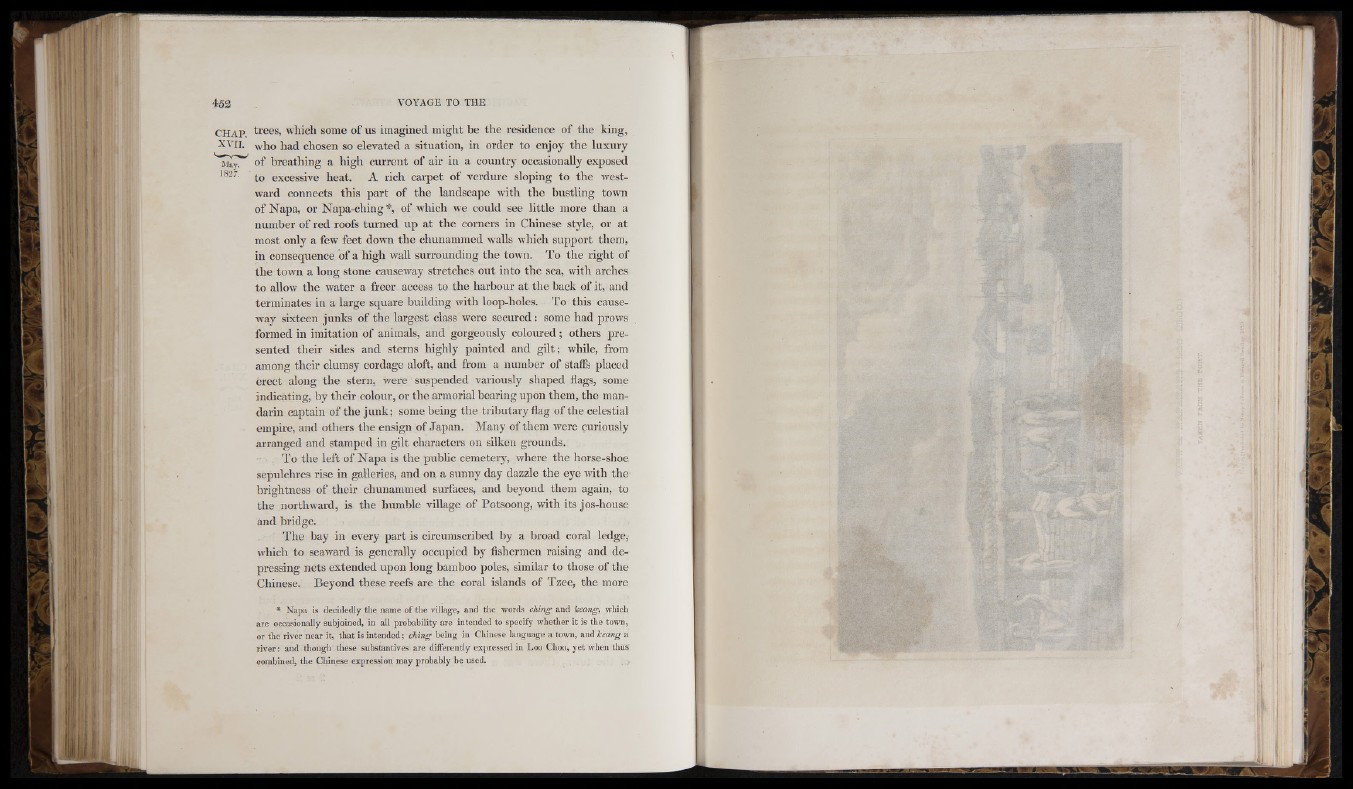
!
■
trees, which some of us imagined might be the residence of the king,
who had chosen so elevated a situation, in order to enjoy the luxury
of breathing a high current of air in a country occasionally exposed
to excessive heat. A rich carpet of verdure sloping to the westward
connects this part of the landscape with the bustling town
of Napa, or Napa-ching*, of which we could see little more than a
number of red roofs turned up at the corners in Chinese style, or at
most only a few feet down the chunammed walls which support them,
in consequence of a high wall surrounding the town. To the right of
the town a long stone causeway stretches out into the sea, with arches
to allow the water a freer access to the harbour at the back of it, and
terminates in a large square building with loop-holes. To this cause-
w'ay sixteen junks of the largest class were secured; some had prows
formed in imitation of animals, and gorgeously coloured ; others presented
their sides and sterns highly painted and gilt; while, from
among their clumsy cordage aloft, and from a number of staffs placed
erect along the stern, were suspended variously shaped flags, some
indicating, by their colour, or the armorial bearing upon them, the mandarin
captain of the junk; some being the tributary flag of the celestial
empire, and others the ensign of Japan. Many of them were curiously
arranged and stamped in gilt characters on silken grounds.
To the left of Napa is the public cemetery, where the horse-shoe
sepulchres rise in galleries, and on a sunny day dazzle the eye with the
brightness of their chunammed surfaces, and beyond them again, to
the northward, is the humble village of Potsoong, with its jos-house
and bridge.
The bay in every part is circumscribed by a broad coral ledge,
which to seaward is generally occupied by fishermen raising and depressing
nets extended upon long bamboo poles, similar to those of the
Chinese. Beyond these reefs are the coral islands of Tzee, the more
illl I
* Nap a is decidedly th e name o f th e village, and the words cliing and Iceang, which
are occasionally subjoined, in all probability are intended to specify whether it is th e town,
or th e riv er n ea r it, th a t is in ten d ed ; ch in g being in Chinese language a town, and Iceang a
riv e r : and though these substantives are differently expressed in Loo Choo, y e t when thus
combined, th e Chinese expression may probably be used.
lil f